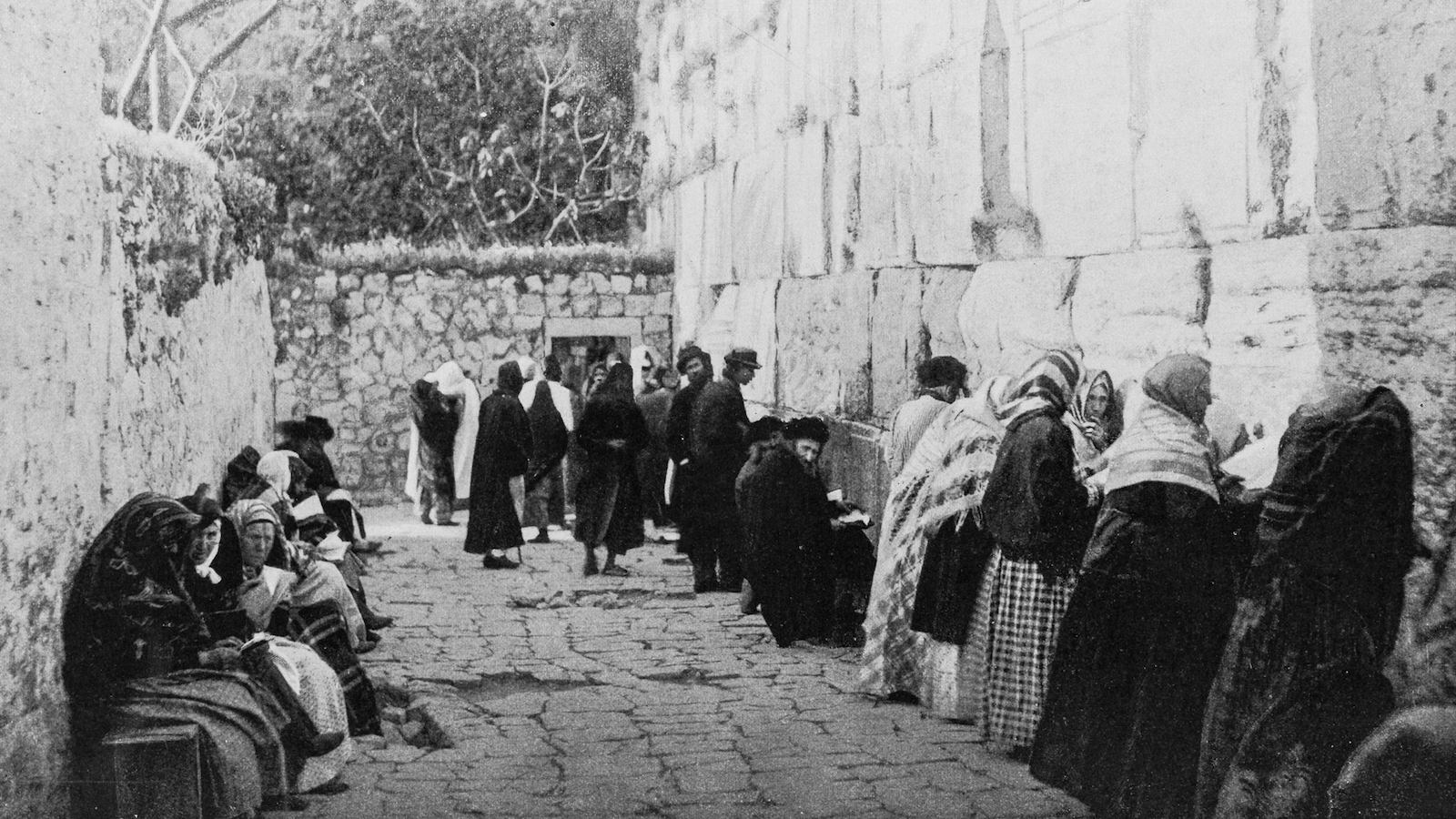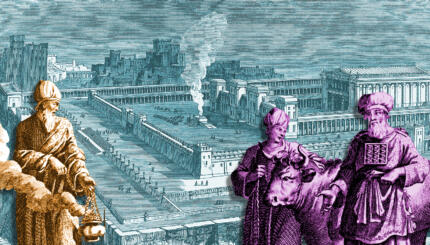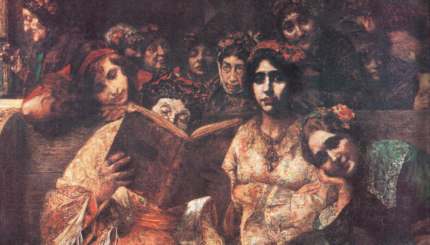Tisha B’ , the ninth of Av, is a full day of fasting and mourning. The month of Av usually falls in the height of the summer. Even with regard to climate, it was the driest time of the year, and thus a time of sadness and uncertainty until the rains came again.
Although the festival commemorates the destruction of both Temples, the main historical sources are in dispute about exactly when the Temples were destroyed. Some say the first Temple was destroyed either on the seventh or the 10th of Av in 586 B.C.E. by Nebuchadnezzar (king of Babylonia), and the second Temple was destroyed on the 10th (70 C.E. by Titus).
The rabbinic authorities decided to mark the ninth as the official date of remembering their destruction.
Tisha B’Av is the saddest day in the Jewish calendar, and over the centuries many tragic events happened — or were traditionally said to have happened — on this date. These include the capture of Bethar, which marked the final defeat of Bar Kokhba‘s rebellion against the Romans, and the razing of Jerusalem by the Romans. The edict of King Edward I compelling the Jews of England to leave the country was signed on the ninth of Av in 1290, the Jews were expelled from Spain on that day in 1492, and World War I broke out in 1914. The sadness and mourning that Jews feel on this day are reflected in the various practices of Tisha B’Av, including abstaining from joyous activities like study of Torah, from eating and drinking, from sexual activity, and from wearing leather.

Help us keep Jewish knowledge accessible to millions of people around the world.
Your donation to My Jewish Learning fuels endless journeys of Jewish discovery. With your help, My Jewish Learning can continue to provide nonstop opportunities for learning, connection and growth.
The ancient rabbinic sages held that the ninth of Av was preordained to be a day of tragedy. The Talmud states that God marked this day for tragedy because of the incident in Numbers 13-14 that took place in the wilderness on this day. Moses had sent spies to scout the Promised Land, and based on their frightened report, the people wept at the prospect of entering such a formidable land full of giants. God declared to them, “You wept without cause; I will therefore make this an eternal day of mourning for you.” The Talmudic tractate Taanit states that God then decreed that on the ninth of Av the Temple would be destroyed and Israel would go into exile.
There is a prodigious amount of Jewish literature that focuses on the destruction of the respective Temples, including books of the Bible such as Eicha (Lamentations), various prophets, numerous Psalms, and Talmudic and midrashic literature. This sadness plays a huge role in Jewish tradition and consciousness. Conservative and Orthodox liturgy maintains various references to the Temple and its sacrifices. Even the names of our prayer services, like Minchah (the afternoon service) and Musaf (additional service), reflect offerings in the Temple. Traditional views on a future messianic age incorporate visions of a rebuilt Temple in Jerusalem and a restored priesthood.
An interesting development in the history of Tisha B’Av relates to the reestablishment of the state of Israel in 1948. Some authorities believe that with restoration of the people to the “holy land,” the festival of Tisha B’Av lost its meaning. The biblical prophet Zechariah had articulated the messianic hope that the Eternal One will return to Zion to dwell in the midst of Jerusalem, city of truth, and in Jerusalem old men and women will sit with staff in hand, watching the broad places filled with playing children. The prophecy of Zechariah was realized with the birth of Israel, and therefore some Jews believe that the second part of the prophecy–which envisioned a time when fast days would be observed as joyous festivals–should be fulfilled.
Rabbi Isaac Klein, a Conservative authority on Jewish law, notes that the events of Tisha B’Av cannot be undone, and it is necessary to remember the tragedies to establish continuity with the past and as a constant stimulus for repentance and good deeds. Others assert that Tisha B’Av is important in order to help Jews focus on religious rebirth and ethical living and to focus on the universal aspects of the messianic hope. It also reminds Jews of their past sacrifices and the sufferings of exile.



